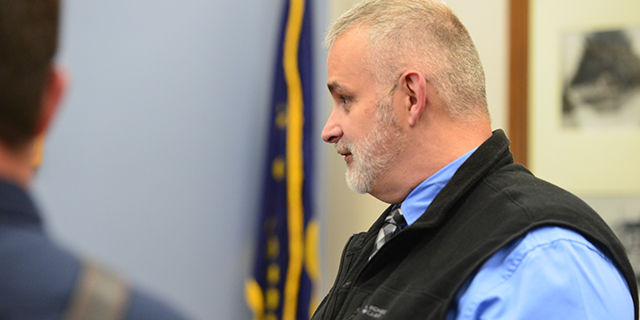For ag economics, east side has new go-to guy
Published 10:56 am Saturday, June 14, 2008

- For ag economics, east side has new go-to guy
On top of more domestic economic woes, there’s been a lot of talk lately about a global food crisis. The price of many commodities is rising, as is, of course, the cost of fuel and transport.
Trending
For Eastern Oregon agriculturalists wondering how such broad-scale dynamics might affect their operation, there’s a new resource in town – one with a semi-nomadic bent.
Bruce Sorte has taken on the job of Eastern Oregon community economist through Oregon State University Extension and its Department of Agricultural and Resource Economics. While his office is based in La Grande -and he and his wife, Joanne, live in Corvallis – he operates out of a restored 1968 airstream trailer stabled at the Union Experiment Station on Catherine Creek, and spends much of his time on the road.
He’s got a big beat, after all, from the snow-swathed Wallowa Mountains to the John Day Highlands to the outback of the southeast.
Trending
Though his emphasis is on rural economic development across the board, Sorte is partly trained as an agricultural economist – and obviously agriculture is one of Northeast Oregon’s economic backbones.
“You don’t get rich, but you can usually count on some income,” Sorte said.
When he considers trends affecting the regional market, Sorte’s thinking across the spectrum of state, national and international machinations.
Sorte said the price of oil has a big impact on agriculture, and in more ways than one.
“Agriculture not only uses a huge amount of petroleum products in fertilizer and to run equipment and so on, but it now has become our sort of safety net to provide fuel,” he explained.
That’s because oil’s rising cost leads to explorations of alternative fuels derived from agricultural products.
Because of this, Sorte pays attention to the ever-volatile political situation in the Middle East.
Furthermore, the rising global population, and the changing demographics of countries like China and India, means a shifting demand for agricultural commodities. Sorte pointed out that expanding tastes for beef and grain might be a boon for producers in the Grande Ronde and Wallowa territory.
“It really can’t spell much more than good news for the northeast corner of Oregon,” he said.
Not that there’s not competition to meet that emerging demand. Australia’s agricultural economy is rebounding from a deliterious and persistent drought. Sorte noted that some investers are looking at sub-Saharan Africa with an eye toward its potential productivity.
Tourism, sometimes touted as a salve for rural America’s financial woes, often takes a beating during times like this, when pocketbooks get a little strapped. That’s when the resiliency of agriculture tends to come into play.
Combining the two sectors in “agritourism” has its possibilities, Sorte said. But he thinks such ventures need to strive for sustainable relationships between farmers and ranchers and those seeking an agrarian experience.
On the job, Sorte is equally adept at navigating statistical models and conversations around the gas pump. Indeed, he considers both approaches – the theoretical and the empirical, you might say – essential to sound economic investigation.
“I try to carry tough messages in humble ways,” Sorte said. “I haven’t got any axes to grind.”
In terms of agriculture, he said he often deals with coordination between lifelong commercial producers and more recent pliers of the trade, what Sorte calls adaptive or lifestyle farmers/ranchers.
“They have a lot of commonalities,” he observed. “But how do you get them together?”
He takes much inspiration from his grandfather, who homesteaded on the Montana plains.
Indeed, Sorte believes modern-day rural residents can glean some insight from the “sodbuster” ethos. The hardscrabble community spirit of Manifest Destiny meant his grandfather
couldn’t afford too much mistrust of outsiders, for example.
“He never said a disparaging word about a visitor, because he might need them to thresh grain or haul water,” Sorte noted.
That reverberates in contemporary America, trying not only to bridge perceived urban and rural ideological gaps, but also integrate recent immigrants into the work force and general society.
New residents of all stripes, Sorte contends, have much to offer a community, often providing essential boosts to social creativity.
In keeping with the extension service’s ethos, Sorte makes an effort to be available to agriculturalists and anyone else, from speaking engagements to service clubs to general consultations. He may be contacted in his office at 962-3228, or through local county Extension offices and OSU’s Rural Studies Program.








